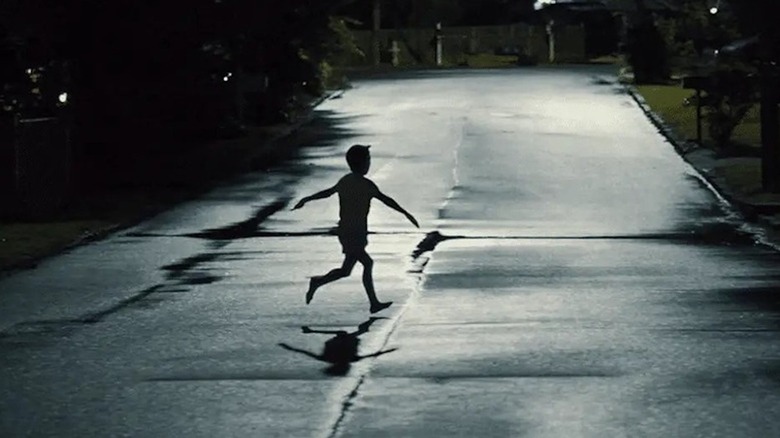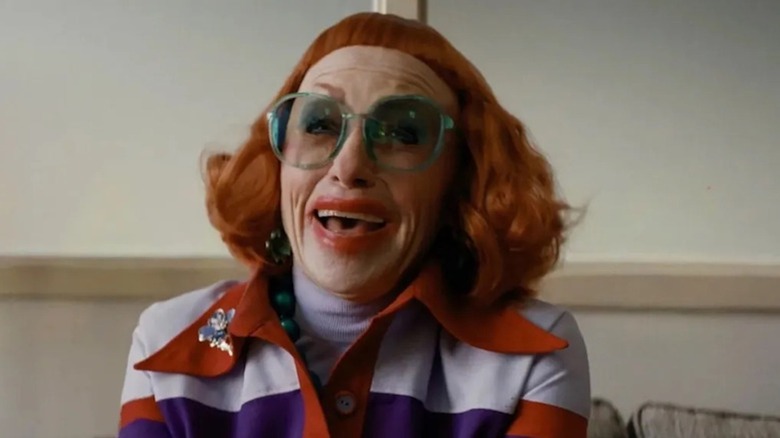Weapons' Original Dark Ending Was Changed Because Of Test Audiences
This article contains spoilers for "Weapons."
Zach Cregger's "Weapons" is a bona fide box office sensation, which is great news for anyone who values original, mainstream-skewing movies boasting honest-to-god production value. Along with Ryan Coogler's "Sinners," its adult demographic suggests that studios are leaving money on the table by training their focus on four-quadrant cash grabs built around superheroes or other wildly popular IP. There is a generation that used to love going to movie theaters; if you hire major talent and bait the hook correctly, they will come back to the multiplex.
While I'm tempering my enthusiasm at the moment (if only because a couple of expensive originals flopping at the box office could quickly drive risk-averse execs to over-prioritize tried-and-true brands), I'm savoring the existence of these movies and hoping for the best. This is tricky because I grew up in the 1980s, when any movie that turned a tidy profit (or found a massive following in home entertainment) earned at least one sequel. And these were not carefully developed movies! Cheaply produced slasher and sex comedy sequels aside, we were subjected to such inert smash-and-grabs as "Short Circuit 2," "Arthur 2: On the Rocks," "Crocodile Dundee 2," "Rambo III," "Poltergeist III," "Caddyshack II" — and these were all released in the same summer! The studios have always been big on hedging their bets.
When studios aren't leaning on pre-existing IP, they often place too great an emphasis on test screening results. Sometimes, they rig the game to override a commercially untested director who's dug in their heels. I personally watched this go down after a riotous screening of "Bad Santa." That's a story for another time. In any event, according to Inverse, it sounds like Cregger encountered a bit of test screening turbulence when he screened his first cut of "Weapons." Did he make the right call?
That cannot be the ending
Once Gladys' spell over her victims is broken, "Weapons" breaks out into gleeful bedlam. The children tear her apart, and, it seems, the world has been restored. But the closing narration tells a different story — and that narration only exists because test screening audiences needed more definitive closure.
As Cregger told Inverse, "Originally, that voiceover that comes in at the end wasn't even in there. I was not really into that idea. I wanted to just end it on [Matthew's] look. But people were not stoked on that." This wasn't the worst problem in the world. As Cregger told Inverse, "People liked the movie, but they all were like, 'That cannot be the ending.'"
This is one of those rare cases where I don't think a test-screening-influenced ending ruined a great movie. Over 40 years ago, audiences demanded a happier ending for Tom Cruise's Joel Goodman in "Risky Business," but the compromise, which found Joel getting into Princeton despite his entrance interview transpiring in a pop-up brothel, was a dark victory. This, we understand, is how the world works, and Joel will thrive in this wretched, pay-to-play (and get laid) environment.
By informing the audience that Alex's parents never recovered, and most of the kids are still semi-catatonic, we're left with more wreckage than redemption. It's odd to me that Cregger wanted to cut out of the film without a closing narration (which we don't get in Paul Thomas Anderson's "Magnolia," the movie Cregger cites as a massive influence on "Weapons"); this is a tidy movie that demands some kind of meaningful denouement. The notion that there's no going back to normal for these children or their families, even after the witch is dead, rings depressingly true in our day and age.

